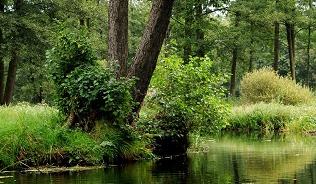A list published in January by the Science Council is being used to highlight a collective blind spot in the approach of government, media and public to science, which either tends to refer only to the deceased or academics and researchers as scientists.
Chief executive of the Science Council, Diana Garnham, said: “It is vital that this narrow vision is challenged urgently because it is inhibiting education policy, the career ambitions of young people and investment in developing the skills we need to deliver a world class economy.”
Dr Garnham added: “Science is like an orchestra. It takes many instruments working together to produce a fine performance. At the moment, almost exclusively, it is the virtuosity of the soloists being addressed and praised. Of course, they are essential to science and should be valued accordingly. However, we must, at the same time, recognise and encourage the many other types of contributory scientific talent and experience.”
To identify its list of 100, the Science Council organised a competition around 10 different ‘types’ of scientist roles. The list of 100 has 10 different examples of each of the 10 types and gives a broad picture of the many different ways people work with science, making valuable contributions across UK society and the economy.
After seeing the list David Willetts, Minister for Universities and Science said: "This list helpfully challenges the perception that there is only one kind of scientist and highlights the different types of skills and challenges a career in science involves. If we want more people to enter a career in science we need to show that the scientific community is not some exclusive club but people with a wide variety of vocations and interests who have rewarding careers and are making a significant contribution to the wealth and well-being of the UK."
The list is a rich and diverse landscape of examples that includes scientists working to research and develop our future knowledge, others teaching and mentoring future scientists, some who shape policy and campaign on science based issues, those who communicate about science and explain complex scientific issues; others who are successful entrepreneurs and business managers, scientists who ensure the safe and legal application of science services and products as well as scientists delivering services and analysis that supports almost every aspect of modern life.
Each type of role in science draws on a different mix of skills, knowledge and expertise. For example, the Explorer scientists are often identified with a specific discipline or area of research, are single-minded and creative and bring fresh ideas or ways of working to their subject; the Policy scientist combines their scientific knowledge with an understanding of the policy landscape and the ability to communicate effectively with policy-makers and interest groups. The Investigator scientist is likely to be working in a multi-disciplinary environment in HE or a research centre, whereas the Business scientist may be using their science at Executive Board level in a commercial setting or managing a risk environment in a multi-national company.
Member organisations and other partners were invited to nominate individuals for each of the categories of ’10 types of scientist’ identifying individuals who are currently engaged with UK science that other scientists might look to for leadership in their sector or career. The Science Council was seeking to identify individual scientists who illustrated a commitment to the practice of science with integrity, who exercised professional skill and judgement in their work, and also contributed to their profession and the future of their subject through their leadership, for example through development of standards or best practice, supporting their professional body, volunteering or mentoring.
Sir Tom Blundell, Science Council President, said: “Most emphatically the list shows that not all scientists wear white coats and that scientists are not only found in universities and research labs: they are literally everywhere in a wide variety of careers and occupations.”



